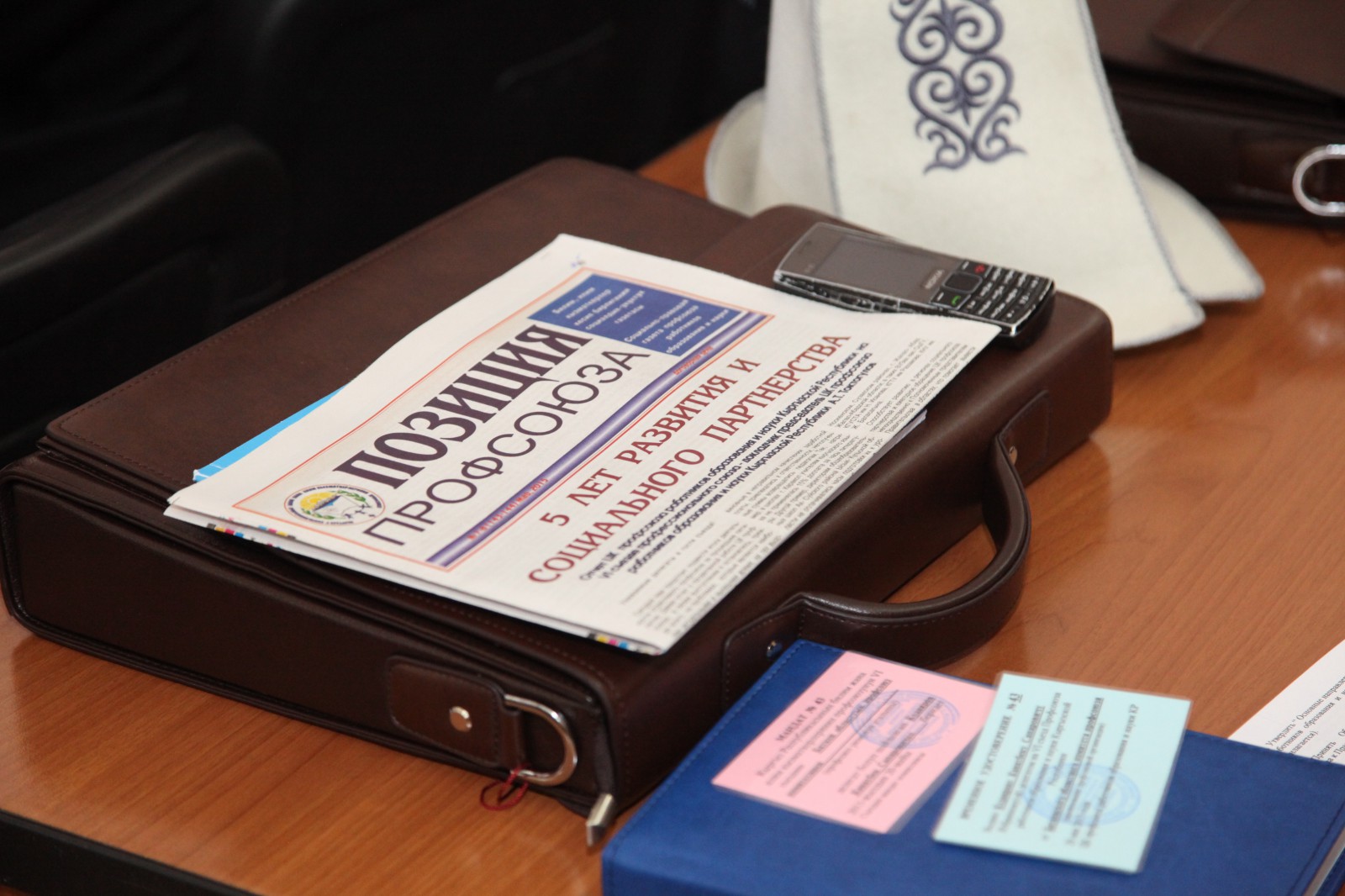Social Dialogue and Social Protection of Trade Union Members: A Key Direction of Work of The Trade Union of Education and Science of the Kyrgyz Republic
Published:
Social support of the union members has been one of the key directions in the work of the Central Committee of Trade Union of Education and Science workers of the Kyrgyz Republic (TUESWK) for many years. One of the priorities of the TUESWK Central Committee is to improve the status of teachers in society by increasing teachers’ salaries. The Central Committee lobbies for these issues in the Jogorku Kenesh, the Government of the Kyrgyz Republic, which organises regular meetings and negotiations with the Education Committee of the Jogorku Kenesh of the Kyrgyz Republic and the Ministry of Education and Science of the Kyrgyz Republic.
A constructive social dialogue at all levels and implementation of sectoral agreements (that are signed by the Union and the Ministry every three years) contributed in 2015 to a new increase in teachers’ salaries by 50% on average, as well as to the abolition of the 20% tax on extra budgetary funding of education institutions (e.g. funds from parents paid for extracurricular activities). This allows using these funds for increasing education employees’ salaries.
In the current education system of the Republic, collective agreements and tripartite agreements cover nearly all (98.6%) trade union organisations under the TUESWK Central Committee, including 67.3% covered by tripartite agreements (Department of Education – District (city) committee of the trade union – Head of the state administration (Akim) or Mayor of the city) and 29.6% by bilateral agreements (Principal or representatives of the school trade union on behalf of teachers – Head of the village administration (Ayylnye aimaks)). Efficient use of the social dialogue helps Ayylnye aimaks to find through collective agreements solutions for teachers’ social problems: to provide them with apartments and landholdings, to allocate the land for new housing construction, and to provide young specialists in rural schools with one-time allowance for home improvement. Local state budgets in some regions of the Republic started providing teachers with funds for utility expenses (on the basis of the Law of the Kyrgyz Republic concerning the Status of Teachers). It can also be noted that the number of teachers using local budget funds for paid vacations has increased in recent years.
It is already an established practice to solve, via the implementation of collective agreements, complex issues of raising the material support for university professors, researchers and students, finding solutions to their housing problems, creating conditions of the medical treatment, rehabilitation and recreation of workers in the education sector. The obligations of collective agreements at higher education institutions provide for additional payments to professors for the academic title, academic degree, as well as for the annual increase of staff salaries, the extension of the paid leave duration, and the provision of benefits and guarantees to students and persons with disabilities.
The president of the TUESWK Central Committee, A.Toktogulov, says: “In order to improve further the education sector at all levels through social dialogue, the TUESWK Central Committee is constantly looking for new work forms and methods."